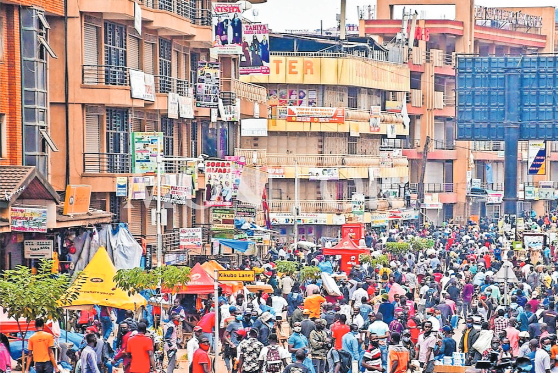Prime
Few willing to openly discuss tribalism

Author, Brian B. Mukalazi. PHOTO/FILE
What you need to know:
- When the story was published on the newspaper’s Facebook page, it attracted a lot of public attention but as I read some of the comments and reactions, my heart sank!
On February 12, Daily Monitor reported the death of Capt Carol Busingye, a UPDF pilot, who perished in a helicopter crash that occurred close to Entebbe International Airport the previous day.
When the story was published on the newspaper’s Facebook page, it attracted a lot of public attention but as I read some of the comments and reactions, my heart sank!
The late Capt Busingye, who, going by the sound of her name, hailed from western Uganda, was subjected to all sorts of insults, derogatory statements and some of the comments gave me a level of pain that is even hard to capture in words.
It was quite clear that the spirit of the late Busingye was being taunted largely because of her tribe.
The above scenario is indeed a sad one but what is more worrying is that it did not happen in isolation and could just be a tip of the iceberg.
Over the last couple of years, I have observed a growing trend of tribalist occurrences in the country (happening both privately and publicly), not only involving “westerners”, but also with or between other Ugandan tribes.
In Uganda, tribalism remains one of those sticky and explosive national issues that very few people, especially those in positions of power, are willing to openly and candidly discuss about.
Yet, the harsh reality is that it continues to spread relentlessly among the population.
What happened to the practice of being our brothers’ or sisters’ keeper? And why or how have we degenerated to such low levels?
When the National Resistance Movement (NRM) government came to power in 1986, it worked out a political programme that is now popularly known as the ‘Ten-Point Programme’ and one of 10 points listed therein, was the “consolidation of national unity and elimination of all forms of sectarianism”.
But while President Museveni has always sternly warned against tribalism, his critics often accuse him of instigating the same.
Their arguments move along the lines of income disparities, bias in top government appointments and unequal regional distribution of government resources, among others.
The brutal truth is that tribalism continues to be deeply entrenched in Uganda’s architecture and with today’s population, breaking such a barrier may not be an easy task.
The current crop of Ugandans is more complex; more cynical; more hardened; asks more questions and is more informed.
However, the responses and attitudes from our leaders - both political and non-political - have also further stirred a sense of bafflement and suspicion among many Ugandans. Part of these troubles may be attributed to the current political divisions and tensions between the leaders that have widened to the point that even basic negotiation appears impossible.
As a nation, we need to rip the roots of tribalism out of Ugandan life and I really think it’s incumbent upon those with power or authority to fully appreciate the severity of the problem. There’s need to stop underestimating its impact and instead focus on tackling it head-on by uncovering the root causes.
We have to embark on a serious battle for winning back the bruised soul of our country but as we do that, it may be critical for us to redefine who we are and also be willing to put some of our imperfections on the table. Short of this, we could be headed for doom.
Mr Brian Mukalazi is the country director of Every Child Ministries Uganda.
[email protected]




